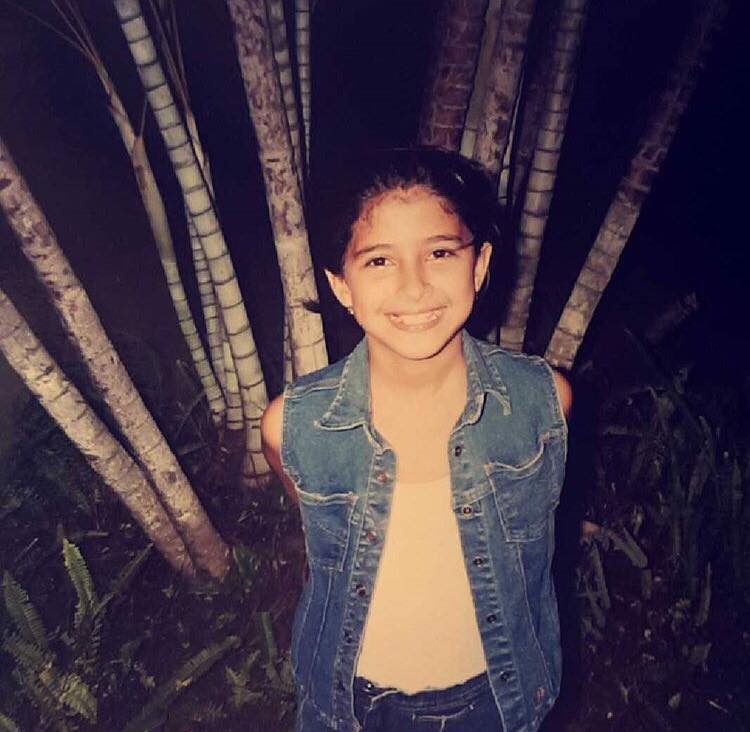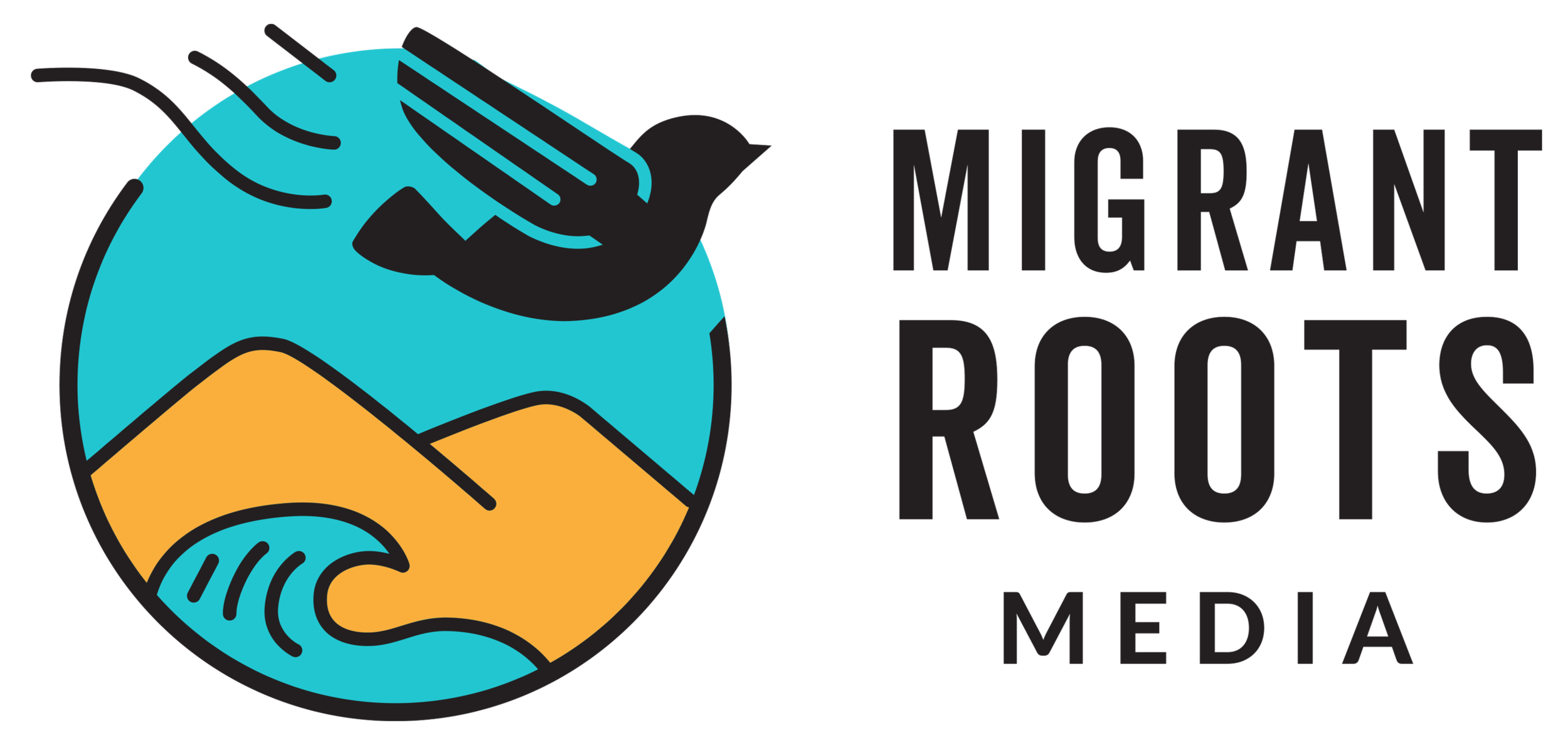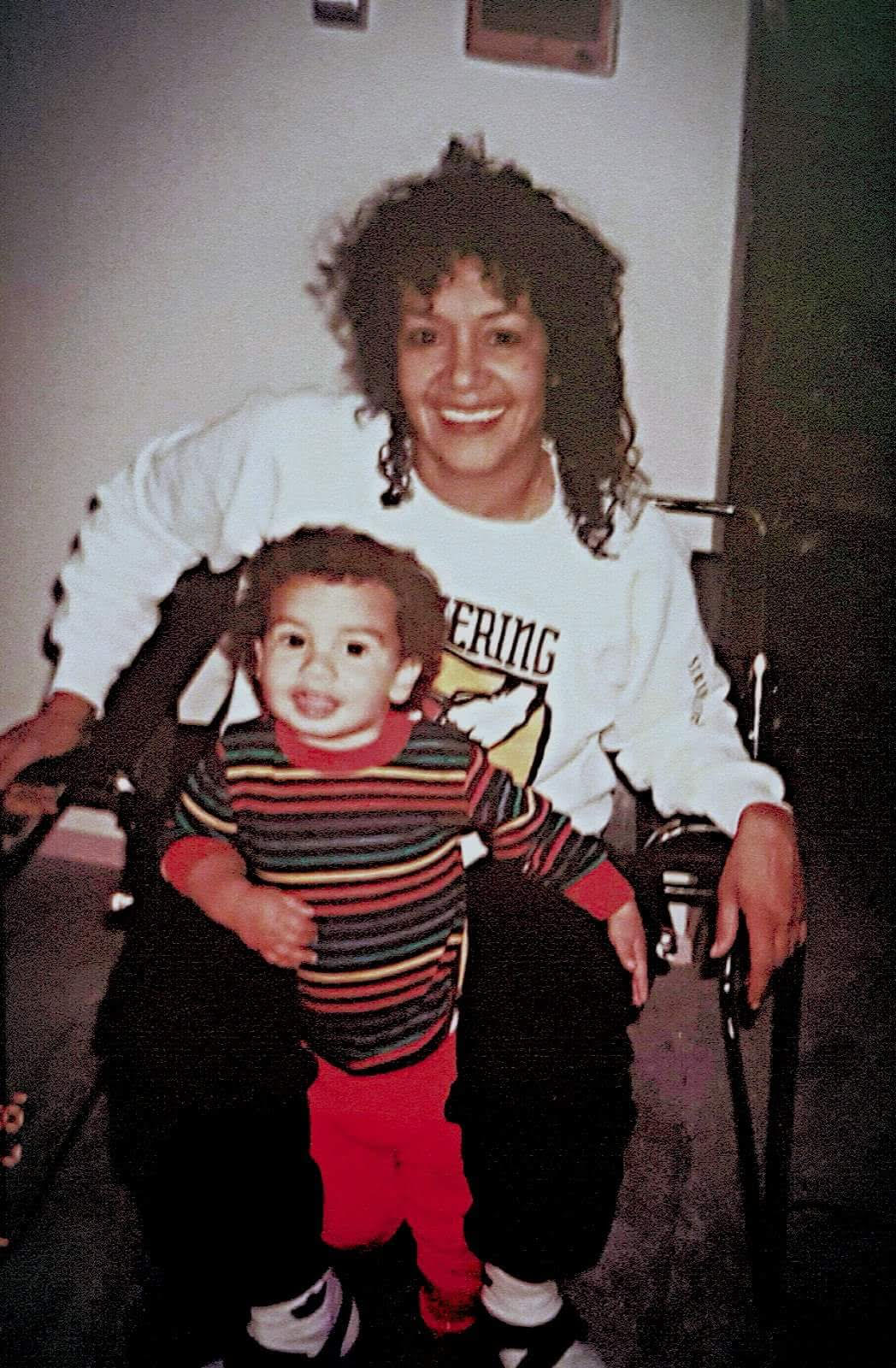1.5 Gen Testimonios: My Family’s Journey | Alejandra Mejía

Writing for Migrant Roots Media (MRM) has quickly become a process of self-discovery, pain, and healing as I’ve started to more deeply research the history of U.S. imperialism in Latin America and understand how it has impacted my family’s journey. My previous article served as an introductory piece, contextualizing my identity as a 1.5 generation immigrant, given the complicated history between the United States and my home countries of Panamá and Honduras. The article also touched on why I find it essential to contribute to a platform like MRM. In order to honestly capture my experience and highlight the effects of U.S. imperialism within my own story, I will share my testimonio in the tradition of other U.S. Latina and Latin American women writers.
My mami working the cultivos in Honduras, 1989.
My story is intimately tied to my mother and her own story, something I find to be a recurring theme for many immigrants. My mother moved from Panamá to Honduras in January of 1985 to study agronomy at a school in Tegucigalpa where she also met my father. My older brother and I were born in Tegucigalpa, Honduras in the early 1990s.
In 1998, the imminent Hurricane Mitch, which caused billions of dollars in destruction and a record-breaking number of deaths in Tegucigalpa, prompted my mother to leave the city for Panamá. This natural disaster was the final push for my mother to return to her home country, adding to the reasons she already had for leaving, which included her separation from my cheating father and inability to find employment in an increasingly poor and unstable country. We were privileged enough to leave Honduras before the hurricane, which exacerbated a “chain reaction of social vulnerabilities created by long-term climate change, environmental degradation, poverty, social inequality, population pressure, rapid urbanisation, and international debt.”
“What was a single mother of two supposed to do in Honduras at that time?” my mother replies when I ask why she migrated. I was three when we left Tegucigalpa, and my memories of Honduras are fragmented due not only to my age, but to the sociopolitical and environmental unrest. For a long time, I tried to repress the memories and ignore the Honduran part of my identity because of the deep pain it carries, largely related to my parents’ divorce, yet the nation and its people are a part of me.
In recent years, my birth city has experienced growing rates of unemployment, poverty, and crime, becoming one of the most dangerous cities in the world with a murder per capita of 59 per 1,000 people as of 2016. This is especially true after the 2009 U.S. backed coup to remove democratically-elected Manuel Zelaya from the presidential office. Corrupt post-coup governments have been closely linked with police and drug cartels, which have only exacerbated the inequity, violence, and poverty in Honduras, leading many people, including unaccompanied youth, to embark on dangerous journeys to the North. I often wonder what my life would have been like had we stayed in Tegucigalpa, yet the social and political context of Honduras at the time drove my mother’s hard decision to leave and subsequently shaped the experiences of my family.
Me, nine years old, in Panamá.
During our eight years in Panamá City, from 1998 to 2005, we lived with my grandmother and aunt in a small apartment near el Puente de las Américas, a bridge that crosses over the Canal. My mother worked hard for my brother and I to attend a private, Americanized, bilingual Catholic school since public education in Panamá was not good. My memories of Panamá mainly consist of wearing a plaid uniform to school, spending a lot of time at my neighbor-best friend’s house, playfully fighting with my brother, and shopping at La Avenida Central with my grandma. Growing up, I became obsessed with shows like Lizzie McGuire, a sitcom depicting the life of a 13-year-old, middle-class, white American girl. I subconsciously grew to desire this life.
My mother, who had a university degree from Honduras, aspired to more than what she was afforded in Panamá. She wanted more opportunities for herself and, more importantly, for my brother and I. Because of her aspirations for a better job and a better education for her children, we migrated to Atlanta, Georgia in 2005 after my mother’s Venezuelan-American friend informed her that there were job opportunities in that state. So we came to the United States, becoming part of the large influx of Central American immigrants to the U.S. South, particularly Georgia and North Carolina. We were pursuing our version of the American Dream.
That year, I would arrive to the United States an insecure 11-year-old immigrant girl with thick, wavy hair and a thicker accent. I remember being excited to befriend white students, since the media had reinforced that “American” largely meant “white.” In my young mind, perhaps befriending white people would be a sign of successful integration and minimize the intense otherness I felt during those first years in this country.
However, this never happened. I attended public schools which served predominantly Black students and children of the Latin American diaspora in Atlanta and built friendships with children who shared similar experiences, particularly other migrant youth. Despite growing up around migrants and people of color, however, my deep insecurities lasted until college. Throughout my young adult life, I internalized the belief that I was less. I hated my accent and chose not to speak to many people, I hated the marked differences on my body when I compared myself to blonde and blue-eyed women whom I had been socialized to regard as the epitome of beauty, and I hated my name most of all. Alejandra: mispronounced in every way imaginable. My eighth-grade teacher simply chose to call me A.J. because there was an “A” and a “J” in my name and I am ashamed to admit that I carried this nickname until college. It felt easier to conform to a name given to me by an older white male rather than sit through the discomfort of butchered attempts.
Our lives took a major turn in the States. Contrary to what we were told and believed, our process of gaining legal status in this country was a lot more difficult. My mother became a domestic worker and lived in a constant state of anxiety, fearing that we would be found and potentially deported. We found support in our extensive friendship network of immigrant and undocumented folks.
Alejandra (Ale) Mejía is the Chief Editor of Migrant Roots Media. Her politics and commitment to migrant justice are largely informed by her lived experiences as a working-class Central American immigrant in the U.S. South. She is an Assistant Editor at Duke University Press, where she acquires books in Latine/x history, and an editor for Tricontinental: Institute for Social Research.







